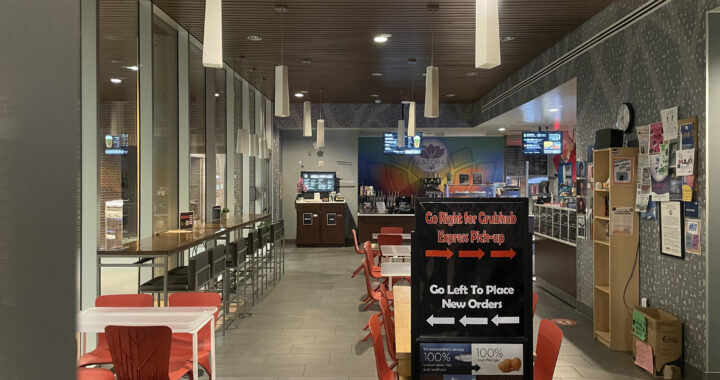Consequences of living in the Internet Age
3 min read
By NOELLE CARLSON
Think about what you post online, whether that it be a photo album on Facebook or a tweet. The intention of anything done publicly online is mostly for the views and likes of others. Now, think of what you do on your computer that is strictly private, such as finances or business emails. Regardless of whether you think it is for your eyes only, there is still no legitimate privacy to anything put out into the world of the Internet.
Recently, there was a major scandal involving the theft and leaking numerous nude celebrity photos. This is a prime example of how even the most intimate of information can be hacked and brought out into the spotlight.
Junior computer science major Shane Chamberlain summed it up best, saying, “The internet is a double edged sword.”
There are pros and cons to the Internet. On one hand, its capabilities are vast and impactful, but all the good it does can be outweighed by how untrustworthy its security is. The Internet can link all people around the globe in just seconds. The downside of making the world a smaller place is that the Internet is not really governed by anyone. We have the freedom to post whatever we please, which can lead to the extermination of privacy. The lack of rules and regulations on the Internet leads to online scams and provides access to information distributed onto the Internet realm, especially since it’s so difficult to recognize authentic sites.
It does not matter whether what you are posting is private or public, it is never 100 percent safe. People are free to post about whatever they want, and there are people who are just as capable to hack that information. Our Internet generation is not one where we can just clear our browser history or delete a photo and it is gone forever. Rather, our history is ineradicable. The recent celebrity photo scandal involving Jennifer Lawrence, Kate Upton and Victoria Justice was a big story in the media. A lot of people made comments about how the stars should have deleted these photos, but these celebrities were hacked and exploited with no way of preventing it from happening.
Now that some of Hollywood’s A-list actresses have had their photos put on blast, it is becoming more of a concern as to how, or if it is at all possible, to have any privacy when using our phones, tablets and computers.
With apps like Snapchat, people can send a quick photo to friends, and within seconds that photo is gone. But who is to say that the photos taken on Snapchat are really gone for good? Or consider the iCloud that most Apple users have. iCloud is essentially a cloud of wireless information, photos and music hooked up to your apple account. Once you snap a photo on your iPhone, it flies on up to the iCloud. U2 recently released their new album for free through the iCloud, so if you have an iCloud set up with your Apple account, you already have U2’s new album and you might not have even known. Not that this is entirely bad news, but it just shows how accessible private information can be.
When you think of today’s technological advances, you think speed. Unlike previous generations, our generation is all about instant gratification. With our faces buried in computers or looking down at our iPhones, we lose sight of real face-to-face interactions.
Speedy connection expedites work efficiency substantially, yes, but I see this dependency on the Internet leading to a society that does not value community within friend groups, work environments and classroom settings. When it comes to human interaction, it is all about quality, not speed.
“There is no escaping it,” senior historic preservation major Emily Elliott said.
Technology is proliferating in the developing world and does not look like it will be taking a breather anytime soon. It is notable that these technological advances are beneficial in many ways, but it is starting to get harder to feel comfortable with the fact that our technology can work against us just as much as it can push us forward.











